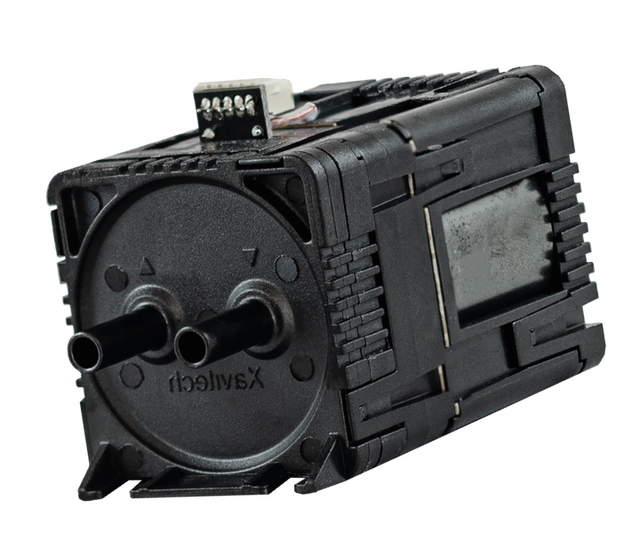XAVITECH
BLACK
35 000h lifetime | 20 - 1300 ml/min flow | 150 - 350mbar pressure
Xavitech’s intelligent pumps are ideal for all Medtech pump applications
with high-quality demand such as long lifetime, low pulsations, low noise
and precision control. Our pumps have a broad installed based and is
used in Capnography, Sleep observations, Sleep Apnea, Cell incubators
and more. It has also been tested for NPWT, Portable lungs, Metabolic
measurements (CPET) and Alcohol/Drug samplers.
We have the ability to make custom calibrations on our BLACK edition
pumps. We can set a specific flow or vacuum. With a custom calibration,
you won’t have to use any extra components to get the flow you need.
You can connect to the pump microprocessor via a serial port to adjust
and store new pump settings in the pump memory, or use one of our
accessories to very easily, control and experiment with the flow rate.
Read more on www.xavitech.com and subscribe to our Newsletter to
learn what we are working on now!





